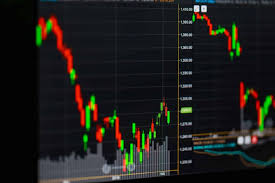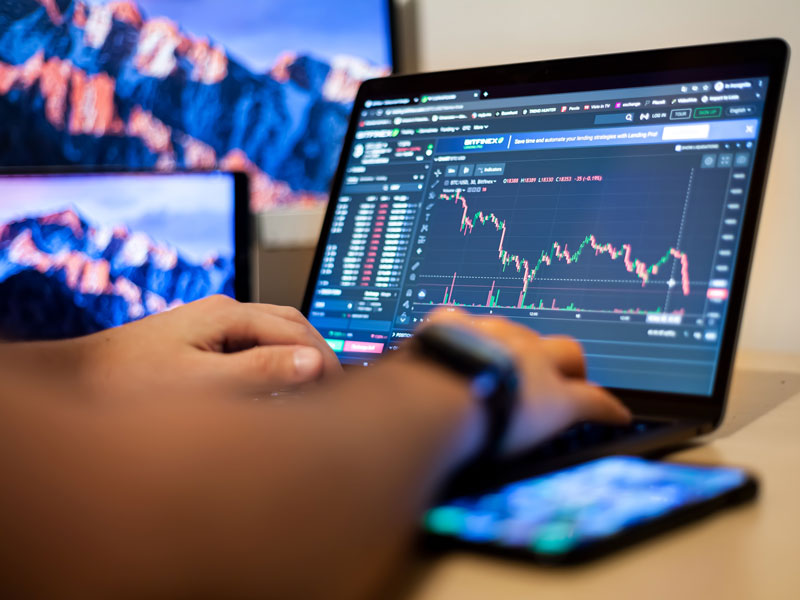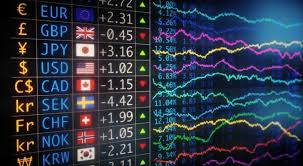
Forex currency trading online has transformed the way individuals and institutions engage in the foreign exchange market. With the advent of technology and the internet, trading currencies has become more accessible than ever. Platforms and tools have enabled traders to operate from anywhere, offering conveniences that were unimaginable just a few decades ago. Whether you’re a novice or an experienced trader, understanding the intricacies of online Forex trading is crucial to your success. To help you on your journey, we will also introduce you to the forex currency trading online Best Trading Apps that can enhance your trading experience.
Understanding Forex Trading
Forex, or foreign exchange, refers to the global marketplace for buying and selling national currencies against one another. It operates 24 hours a day, five days a week, and is the largest financial market in the world, with a daily trading volume surpassing $6 trillion. The Forex market allows traders to speculate on currency pairs, such as the Euro versus the US Dollar (EUR/USD), and capitalize on price fluctuations.
The Basics of Currency Pairs
Currencies are traded in pairs, with the first currency in the pair called the base currency and the second known as the quote currency. For instance, in the EUR/USD pair, EUR is the base currency, and USD is the quote currency. The price of the pair reflects how much of the quote currency is needed to purchase one unit of the base currency. Understanding currency pairs is fundamental for anyone looking to make trades in the Forex market.

Getting Started with Online Forex Trading
To begin trading Forex online, you need to follow a few essential steps:
- Choose a Reliable Broker: Finding a reputable Forex broker is critical. Look for brokers who are regulated by relevant financial authorities, offer competitive spreads, and provide a user-friendly trading platform.
- Create a Trading Account: Once you have selected a broker, you will need to open a trading account. Most brokers offer various account types, including demo accounts for practice and live accounts for real trading.
- Develop a Trading Strategy: A solid trading strategy is essential for success. Consider your risk tolerance, trading style (day trading, swing trading, etc.), and market analysis techniques (technical or fundamental analysis).
- Fund Your Account: After setting up your account, you must deposit funds to start trading. Ensure you understand any fees associated with deposits and withdrawals.
- Start Trading: With your account funded and strategy in place, you can begin making trades. Monitor the market closely, and be prepared to adapt as conditions change.
Essential Tools for Forex Trading
Successful Forex trading relies on various tools that can analyze market trends, automate trading, or enhance decision-making. Here are some essential tools every trader should consider:
- Trading Platforms: Most brokers provide their trading platforms, which may include web-based platforms or downloadable apps. Popular examples include MetaTrader 4 (MT4) and MetaTrader 5 (MT5).
- Charting Tools: Effective charting and technical analysis tools help traders identify trends and potential entry and exit points. Look for features such as indicators, trend lines, and drawing tools.
- Economic Calendars: Keeping track of economic events is crucial, as they can significantly impact currency prices. Economic calendars provide schedules for important announcements, reports, and data releases.
- Automated Trading Systems: Some traders use algorithms to place trades on their behalf based on predetermined criteria. These systems can help eliminate emotional decision-making.
Risk Management in Forex Trading

Managing risk is fundamental to long-term success in Forex trading. Here are some essential risk management practices:
- Set Stop-Loss Orders: A stop-loss order automatically closes your trade when the price reaches a certain level, limiting potential losses.
- Use Proper Position Sizing: Determine the appropriate amount to risk per trade based on your trading capital. Many traders use the 1-2% rule, risking only a small percentage of their account on each trade.
- Diversity Your Portfolio: Don’t put all your capital into a single currency pair. Diversifying your trades helps to spread risk.
Continuing Education
The Forex market is dynamic and constantly evolving. To stay ahead, continuous education is essential. Traders should engage in ongoing learning through:
- Books and Articles: There are countless resources available for Forex traders. Investing time in reading can sharpen your skills and broaden your understanding.
- Online Courses: Many platforms offer forex trading courses designed for various skill levels, covering topics from basic to advanced trading strategies.
- Webinars and Seminars: Attend live sessions to learn from experienced traders and market analysts. These can provide valuable insights and practical tips.
Conclusion
Forex currency trading online offers endless opportunities for those willing to invest the time and effort to learn the nuances of the market. From understanding currency pairs and choosing the right broker to implementing effective risk management strategies, there is much to explore. With the right tools and a disciplined approach, traders can achieve their financial goals and thrive in this fast-paced environment. Remember to stay informed, practice regularly, and continually enhance your skills to navigate the complexities of Forex trading successfully.